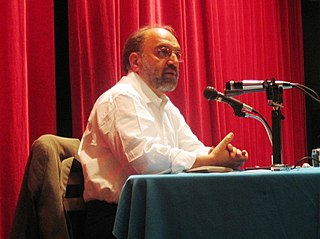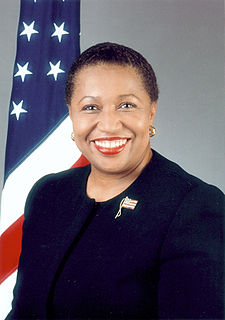A Quote by John Yoo
I believe that the power to declare war is most important in limiting the powers of the national government in regard to the rights of its citizens, but that it does not require Congress to give its approval before the president uses force abroad. I do not believe that the framers of the Constitution understood the power to declare to mean "authorize" or "commence" war. That does not mean that the separation of powers or checks and balances will not work.
Quote Topics
Related Quotes
No power but Congress can declare war; but what is the value of this constitutional provision, if the President of his own authority may make such military movements as must bring on war? ... [T]hese remarks originate purely in a desire to maintain the powers of government as they are established by the Constitution between the different departments, and hope that, whether we have conquests or no conquests, war or no war, peace or no peace, we shall yet preserve, in its integrity and strength, the Constitution of the United States.
The Constitution expressly and exclusively vests in the Legislature the power of declaring a state of war [and] the power of raising armies.... A delegation of such powers [to the President] would have struck, not only at the fabric of our Constitution, but at the foundation of all well organized and well checked governments. The separation of the power of declaring war from that of conducting it, is wisely contrived to exclude the danger of its being declared for the sake of its being conducted.
I believe in the Constitution. I believe in separation of powers. I believe in the rule of law. I believe in limited government. And these are principles and policies that apparently neither the national Republican nor the national Democrat Party believes in. I believe great damage is being done to our Constitution, and I see no remedy at all, no likelihood of that changing, if we rely on the two parties to field our candidates for national office.
Religion forbids us from assuming a God-like character. This is especially true in politics and government, where limiting the power of the state, division of powers, and the doctrine of checks and balances are established in order to prevent accumulation of power that might lead to such Godly claims.
The president does not have power under the Constitution to unilaterally authorize a military attack in a situation that does not involve stopping an actual or imminent threat to the nation. As commander in chief, the president does have a duty to protect and defend the United States. In instances of self-defense, the president would be within his constitutional authority to act before advising Congress or seeking its consent.
The War between the States... produced the foundation for the kind of government we have today: consolidated and absolute, based on the unrestrained will of the majority, with force, threats, and intimidation being the order of the day. Today's federal government is considerably at odds with that envisioned by the framers of the Constitution. ... [The War] also laid to rest the great principle enunciated in the Declaration of Independence that 'Governments are instituted among Men, deriving their just powers from the consent of the governed'.


































